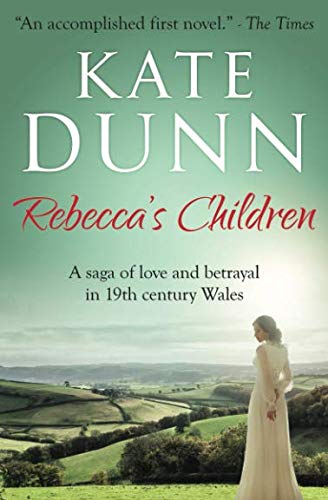Rebecca’s Children: A Saga of Love & Betrayal in 19th Century Wales
Between 1839 and 1843, the Rebecca Riots in South Wales brought the wrath of the English army down on the farmers and laborers protesting rising rents, unfair tithes, and the toll gates that cut into their meager income. Dunn’s novel offers a multifaceted look into those tumultuous times, framed as the origin story of Mary Jenkins’s illegitimate daughter, Eleanor. While the novel opens and closes in 1861 with solicitor Hugh Williams losing one wife and gaining another, the bulk of the book describes the unrest from many points of view, including those of the magistrates and soldiers, the persecuted toll keepers, and the rioters who pose in women’s garb as the biblical Rebecca and her “children.” A major character is young William Jenkins of Dolwilym, a farmer who gets caught up in the fever at great personal cost. But the cost to his sister Mary is greater, and the most moving, memorable scenes in the book recount her fear for William, her work as a secretary for Hugh, her blooming love for Jac Tŷ Isha, and the consequences that change all their lives.
The frequent head-popping can be dizzying, with perspectives shifting between one line and another, but it makes the story about more than Mary’s personal grief; Rebecca’s Children is the story of a place, a burdened people restless for change, and the cruelties, both small and large, which entrap them. Dunn’s prose is nimble and her lines clean and clear, evoking the land and its people in small details rather than broad sweeps, turning real historical events into a memorable narrative of love found and then lost.










